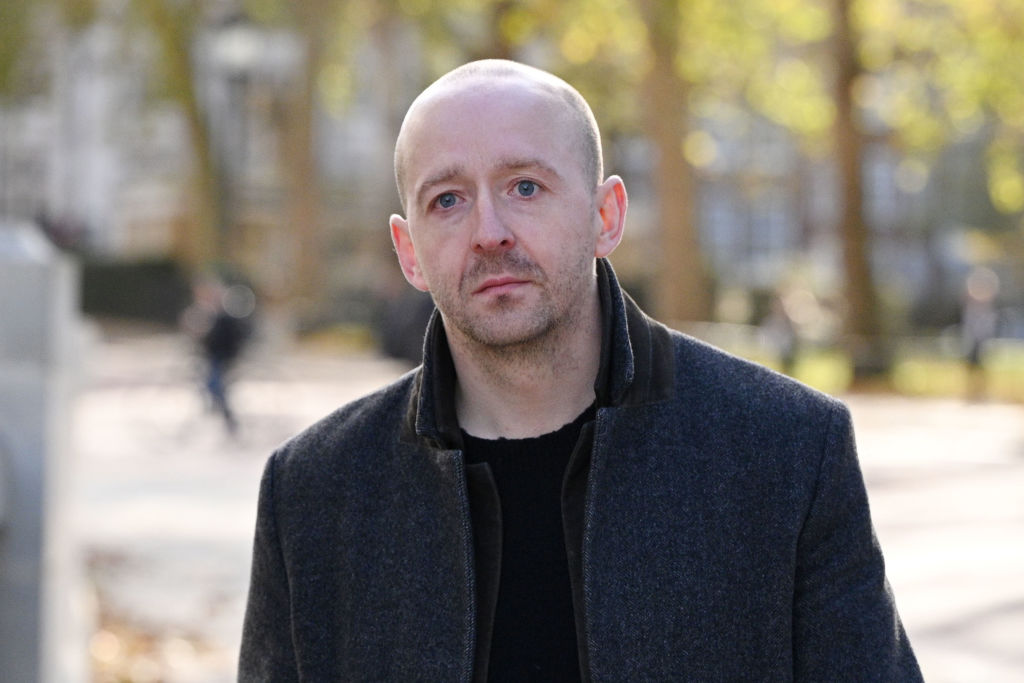I come from the Lancastrian town of Ormskirk, which, though pretty, provided little in the way of opportunity or aspiration. No one in our family had been to university. I qualified for free school meals. Expectations for my future were low.
But I was lucky. I had great mentors and ended up in Downing Street. I also worked for a Prime Minister who believes in social mobility and put ‘levelling up’ at the very centre of his premiership. This was the reason I came into politics too. Boris Johnson understands that the need for social mobility is now more urgent than ever, as we emerge from lockdown.
While the food poverty debate raged last summer, and the government found itself losing a PR war with the footballer Marcus Rashford, I attended a cabinet meeting. I asked the people running the country how many of them were ever eligible for free school meals and discovered I was the only person in the room who had been. Is that the reason the government got itself in such a terrible tangle over this emotive issue? No. But would it have helped if more senior politicians had had personal experience of food poverty? Undoubtedly.
Every political leader for the past 30 years has made great promises about ending inequality, but the economic and social groups we are born into remain extremely difficult to escape. Just under 10 per cent move from the bottom fifth to the top fifth by their late thirties. In the wake of the financial crisis, the number of people exceeding or equalling their father’s pay packet at the same age dropped from 64 per cent in 2006 to 44 per cent by 2019. Generation Covid now faces a post-pandemic catastrophe, with opportunities diminishing most for those without the advantages of wealth, connections and class.
The economic and social groups we are born into remain extremely difficult to escape
The existing attainment gap between poorer and richer children is set to grow. Poorer households typically have worse internet access, fewer devices for home learning, less quiet space to work in and parents who are less confident about supporting their children’s learning at home. They also can’t afford catch-up tutoring.
After school, employers often shun poorer children with potential for ‘safer bets’ from Russell Group universities. Many of the ladders of social mobility — apprenticeships, internships, work experience — have become harder to access in the past year.
On top of all this, the sectors that disproportionately employ the young and those from poorer backgrounds, such as hospitality and retail, have taken the biggest hit from the crisis. Almost two thirds of the jobs lost during the pandemic have been among the under-25s.
Even those who do make it into big professions can struggle to break through the ‘class ceiling’. Britain’s most powerful jobs are still dominated by the tiny proportion (7 per cent) who attended private school. No surprise that Fleet Street and Whitehall are among the worst offenders.
It still matters what school tie you wore, it matters what accent you have and it matters what class you are. This is a disaster for working-class boys and girls.
My experiences in Westminster made it easy to see why young working-class women and men struggle to get ahead. Class-based bias still exists. I lost count of the times I was branded a ‘bruiser’, ‘thuggish’ or even an ‘oik’ for the twin crimes of having a strong northern accent and shaved hair. Luckily I have a skin thicker than my accent. I also had employers, especially Michael Gove and Boris Johnson, who judged me only on my abilities, not my background. But when I first entered Downing Street I got the distinct feeling that some senior officials thought I should be content simply to be there. The clear message was: you’ve come a long way, don’t overreach now.
Yet if men and women with thick accents and poorer backgrounds are kept quietly away from the top roles, or undermined when they reach them, then political parties and business leaders will find themselves ever more baffled and out of touch with the people they seek to lead.
I know from my time at the heart of government that Boris is determined to change things — and not just for a lucky few who are able to accrue debt by moving to London. He knows that if he is to transform the country then ‘levelling up’ must mean that the only limit is your ability and ambition. It surprises many people in the capital, but not everybody wants to move to London and be a CEO or City trader. Plenty of people simply want a better life in their own home towns, which means a greater choice of education, training and careers.
In the last election, the demographics of the Conservative party radically changed. Our campaign persuaded voters in Labour’s red-wall heartlands that we would not only ‘get Brexit done’ but also be a ‘people’s government’. Voters were unhappy with the status quo. They wanted more affordable housing, better schools, improved transport links and access to skilled jobs.
Kick-starting this new long-term national mission means pulling together government, civil society and the business community to develop a new ‘people-focused’ strategy. The twin drivers of social mobility — education and skills — must be at its core. We need a renewed concentration on failing schools in disadvantaged areas, as well as high-quality early-years education for the poorest, more pay for teachers working in deprived places and an expansion of apprenticeships.
We also need to create new skilled jobs and encourage business to relocate and invest in communities. Infrastructure projects need to speed up. The tired Social Mobility Commission should be reset and given real power to drive this agenda across Whitehall.
After the pandemic and all the promises this government made, tackling inequality is now a moral imperative. Our ambitions must match the scale of the problem. Now is the time, as the Prime Minister himself would say, to double down on levelling up.






Comments